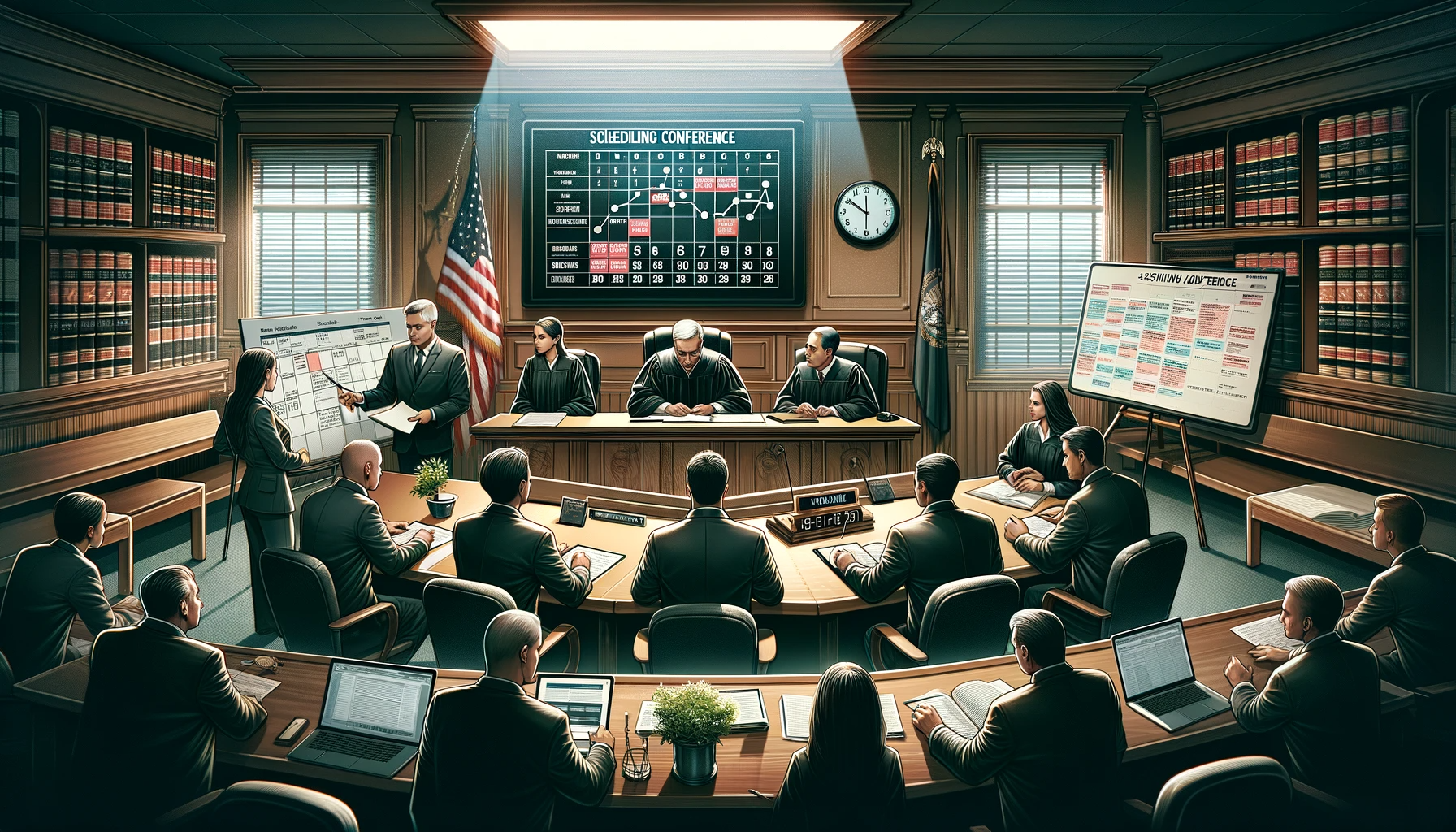Hey folks, it’s John M. Kaman from Kaman Law Firm here. Today, we’re going to demystify a key part of the criminal justice process: the scheduling conference. If you’ve found yourself entangled in a criminal case, or you’re just a law enthusiast, understanding what happens during these conferences is super important.
What is a Scheduling Conference?
In the simplest terms, a scheduling conference in a criminal case is a pre-trial meeting involving the judge, defense attorneys, and prosecutors. Think of it as a planning session where the key players lay down the roadmap for how the case will proceed.
The Purpose of Scheduling Conferences
The main goal of a scheduling conference is to establish a timeline for the different stages of the case. This includes setting dates for:
- Filing Motions: Deadlines for legal motions by the defense or prosecution.
- Evidence Exchange: Timelines for sharing evidence between parties.
- Trial Date: Setting a specific date for the trial to commence.
Why Scheduling Conferences Matter
These conferences are crucial for several reasons:
- Efficiency: They help ensure the case moves through the system smoothly and efficiently.
- Fairness: By setting clear deadlines, they help guarantee a fair trial by giving both sides enough time to prepare.
- Conflict Resolution: Sometimes, scheduling conferences can lead to discussions that resolve issues before the trial, possibly leading to settlements or plea bargains.
What to Expect
If you’re involved in a criminal case, here’s what you can typically expect during a scheduling conference:
- Discussion of Issues: Identifying any potential legal or procedural issues early on.
- Setting Deadlines: Agreeing on deadlines for motions, evidence sharing, and other pre-trial activities.
- Trial Preparation: Laying the groundwork for trial preparation, including jury selection and witness lists.
The Role of Defense Attorneys
As a defense attorney, it’s my job to advocate for my client’s best interests during these conferences. This involves negotiating timelines, ensuring fair access to evidence, and sometimes, discussing possible plea deals.
Tips for Defendants
- Stay Informed: Understand the timeline and what’s expected of you.
- Work Closely with Your Attorney: Effective communication with your defense attorney is key to navigate through these stages.
- Be Proactive: Understand your rights and the legal options available to you.
Wrapping Up
Scheduling conferences might seem like just another procedural step, but they play a vital role in the justice system. They ensure that criminal cases are handled efficiently and fairly, setting the stage for all the important work that happens before a trial.
Need more insight or legal advice regarding criminal cases? Don’t hesitate to contact us at Kaman Law Firm. We’re here to guide you through the intricacies of the legal process, every step of the way!









Leave a Reply